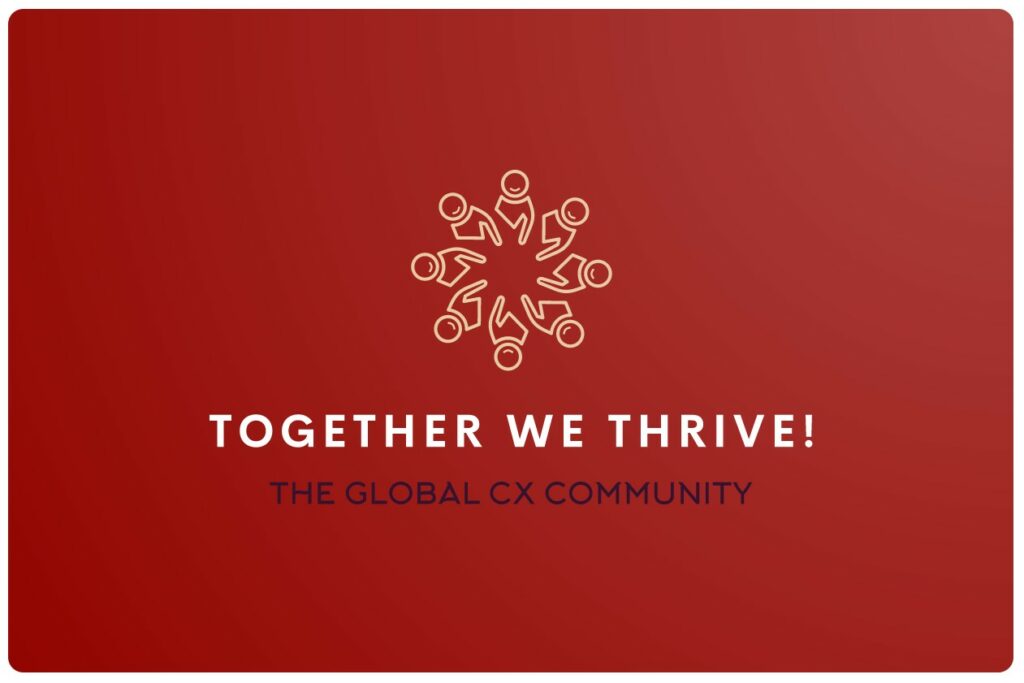The past several years showed us that now more than ever entrepreneurs can’t afford to sit out a crisis, whether it is a global pandemic, economic recession, or a war. Disruption is steadily becoming the new normal, and the sooner business professionals learn to navigate their activities within it, the more chances for success they have.
Interestingly, in Chinese calligraphy, the word “crisis” is represented with two basic characters, “danger” and “opportunity”, and whether you lead your business to the one side or the other in many ways depends on how well you adapt to the new circumstances.

Of course, exceptional conditions require their own game rules. At the Customer Institute, we asked our board of directors what advice they would give to Heads of CX in times of disruption to successfully adapt their CX initiatives to the new environment and keep functioning.
Understand Customer Needs and Respond Quickly
As the saying goes, there is no business without a customer. In the times of crisis, it is more important than ever to understand your customer’s emotional state and changed needs. Think of how you can adapt your products and services to cater to that. Your actions should be fast and sharp.
Crisis causes vulnerability which affects your customers. As their behavior and needs change, you should identify a new customer persona and design a new customer journey that will correspond to the current circumstances and possible limitations without impeding customer satisfaction.
Your Employees Are as Important
Extend that thought to your employees. They are affected by the crisis as much as your customers. Identifying and addressing their needs both as your employees and human beings is essential, even more so for those who work on the front line.
Stick to the relationships you have and continue building on them. Your focus should be based on their life cycle. When adapting your products and services to cater to the customer changed needs, keep your employees’ needs in mind as well, to meet them where they are now.
Communication and Empathy Are Key
Communication becomes more important than ever. Be informed and raise awareness of your customers. A recent Gallup study found that in times of uncertainty, four emotional needs are required to be present to make people feel engaged and connected: trust, compassion, stability, and hope. All four of these needs are grounded in empathy. It’s important to continue to show empathy and always be curious to nurture customer relationships. This builds trust and drives customer loyalty and advocacy.
Now context matters more than ever. Your teams have become used to processes and rhythms which are no longer feasible or even possible. Consider doubling up on your communication, spending more time in front of people. They will get more value from how you are with them than from what you say to them.
This is also a good opportunity to address any wasted time or effort in the interaction between your customer and your company. Things that might have been a mild inconvenience in a normal environment can grow many-fold in times of crisis as the pandemic showed us.
Human Experience Comes First
Focus on human experience, consider what you, your employees, and your organization can do to support good causes. You can think about ROI later, for now staying ethical is most important. In the long run, this will create loyalty and trust towards your brand. For the same reason, avoid making promises you can’t deliver on.
Don’t be afraid to talk about your actions. If done authentically, this will spread awareness, which is always of great importance in the times of crisis. Your actions can also set an example for others.
Whatever You Do, Don’t Stop
When dealing with problems at hand, don’t lose focus of the long game. There is a tendency in times of crisis to cut back on the majority of operations except the most essential ones. As it stands, customer experience and employee experience are often not on that list. The problem here is that customer centricity very much resembles a loaded cargo train in that once you stop it, it takes incredible effort to put it back in motion.
That’s why, if it is absolutely necessary to cut down on your CX initiatives, make sure to prioritize what has to go and what stays. As much as possible, don’t remove services you offer, since it will create even more disruption in what’s already an unstable environment. Cut down on the stuff that keeps you paddling underwater and is invisible to others but above the waterline nothing should change from the CX and customer/employee empathy perspective. They are the most important thing for you, and everything should point to that.
As said earlier, crisis is danger but it’s also an opportunity. During a crisis people tend to pay attention to things that come as self-evident at other times. Use this opportunity to elevate and enforce the message of how much customer centricity can benefit your business both short and long-term.
And of course, stay safe and keep your customers and employees safe!









Leave A Comment